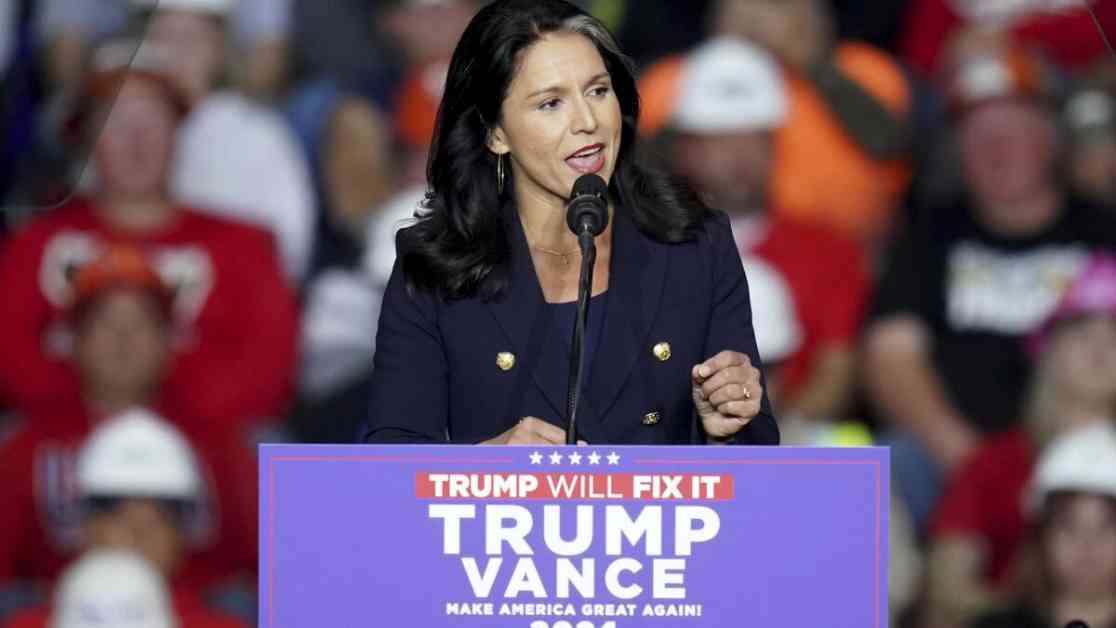Tulsi Gabbard: The Controversial Cabinet Pick
In a surprising turn of events, President-elect Donald Trump has chosen Tulsi Gabbard as his nominee to oversee the nation’s 18 intelligence agencies. Gabbard, a former Bernie Sanders Democrat, has made headlines for her outspoken views, which have raised concerns among both Democrats and Republicans.
A Polarizing Figure
Gabbard, known for her staunch anti-interventionist stance and criticism of the Democratic Party, has been a vocal critic of President Biden and Vice President Kamala Harris. She has accused the Democratic Party of being controlled by a “warmongering elitist cabal” and has expressed views that align closely with those of former President Trump.
Concerns Among National Security Experts
National security veterans from both parties have expressed alarm at Gabbard’s nomination, citing concerns about her competence and judgment. Gregory F. Treverton, a former top intelligence official, has called her nomination a case of “demonstrated incompetence,” suggesting that she was chosen solely for her loyalty to Trump.
John Bolton, Trump’s former national security advisor, has gone even further, labeling Gabbard as a “serious threat to our national security” due to her questionable judgment. Senate Republicans have also raised doubts about her nomination, with some calling for a full background check before confirming her appointment.
The Road Ahead
As Gabbard’s nomination moves to the Senate for confirmation, the spotlight will be on key Republicans like Sen. Mitch McConnell, who has been critical of Trump’s foreign policy approach. McConnell has emphasized the importance of pushing back against threats from Russia and its allies, signaling potential opposition to Gabbard’s appointment.
With the GOP holding a slim majority in the Senate, Gabbard’s nomination hangs in the balance. Will Senate Republicans unite to oppose her appointment, or will she become the next director of national intelligence? The coming days will reveal the fate of this controversial cabinet pick and its implications for national security.
As we navigate the complexities of political appointments and national security, it is crucial to prioritize competence and integrity in our leaders. The selection of individuals to oversee our intelligence agencies should be based on merit and expertise, rather than political loyalty. Let us remain vigilant and hold our elected officials accountable for upholding the values and principles that safeguard our nation’s security.



























